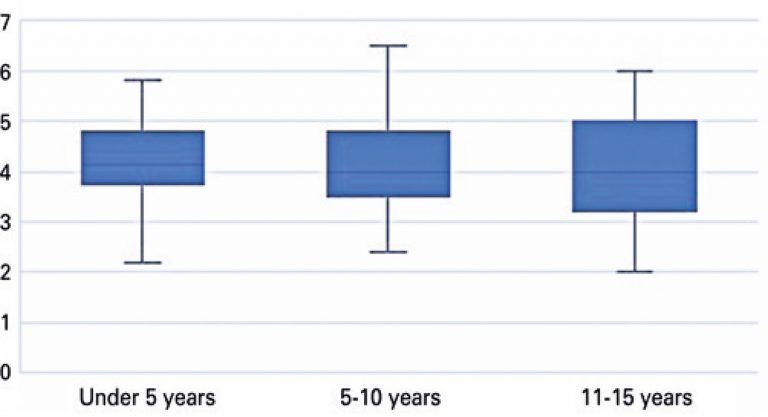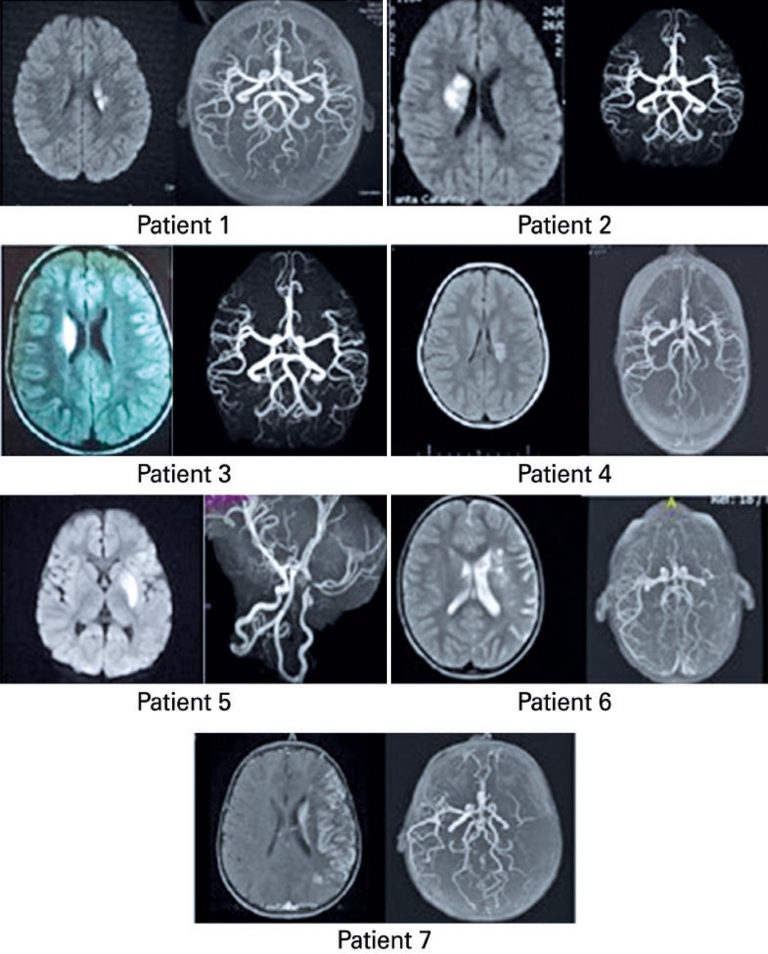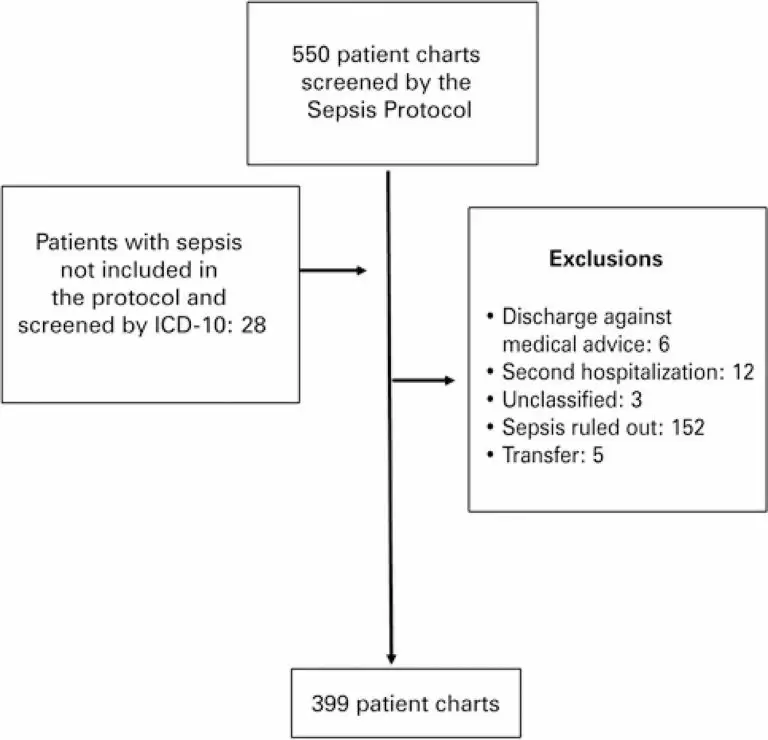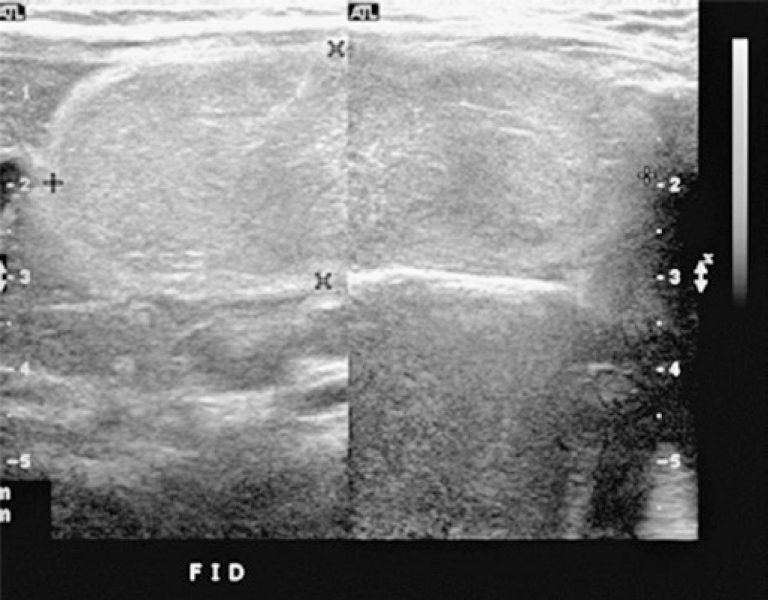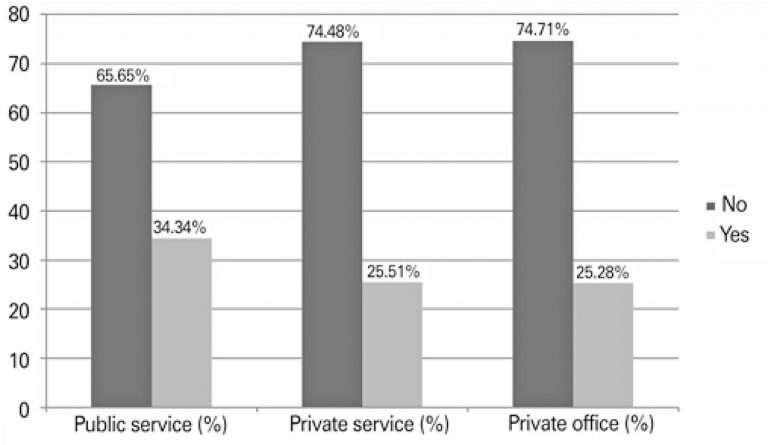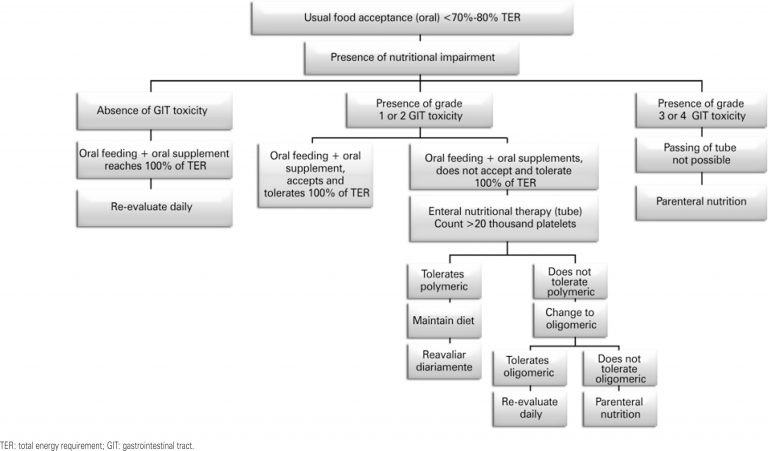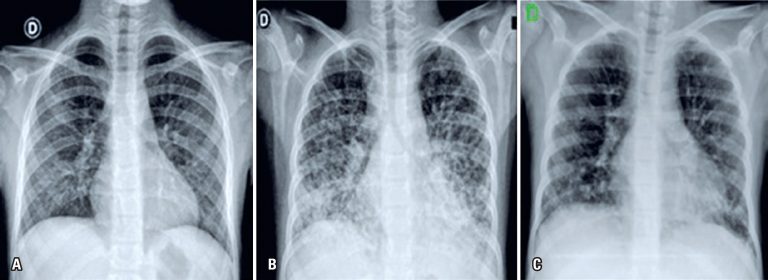28/Jun/2022
Ultrasonographic evaluation of cecal appendix diameter in pediatric population
DOI: 10.31744/einstein_journal/2022AO6935
ABSTRACT Objective To stratify ultrasound samples in a pediatric population undergoing evaluation for acute appendicitis to examine the variability in cecal appendix diameter, in different age groups, and to determine whether there is a prevalent value for each age group. Methods A retrospective cross-sectional study with 196 children aged 0 to 15 years. Data were extracted from reports of ultrasound examinations carried out between 2008 and 2015. Children with sonographic diagnosis of appendicitis or other signs of periappendiceal inflammation were […]
Keywords: Appendicitis/diagnostic imaging; Appendix; Child; Ultrasonography
28/Apr/2022
Evaluation of pulse wave velocity and central systolic blood pressure in children and adolescents with chronic kidney disease
einstein (São Paulo). 28/Apr/2022;20:eAO6758.
View Article28/Apr/2022
Evaluation of pulse wave velocity and central systolic blood pressure in children and adolescents with chronic kidney disease
DOI: 10.31744/einstein_journal/2022AO6758
ABSTRACT Objective Investigate pulse wave velocity and central systolic blood pressure among pediatric population with chronic kidney disease. Methods In this cross-sectional study, 57 patients (61.4% male) aged 6.2 to 17.5 years old, 44 with nondialysis chronic kidney disease and 13 on chronic dialysis, were included in the analysis. The pulse wave velocity and the central systolic blood pressure were measured with an oscillometric device with an inbuilt ARC SolverⓇ algorithm and were compared with previously established percentiles. Results The […]
Keywords: Adolescent; Arterial pressure; Cardiovascular diseases; Child; Pulse wave analysis; Renal insufficiency, chronic
28/Apr/2022
Post-varicella arterial ischemic stroke in children and neurocognitive performance: a 4-year follow-up study
DOI: 10.31744/einstein_journal/2022AO6360
ABSTRACT Objective To analyze data from children who were previously healthy and presented with post-varicella arterial ischemic stroke upon arrival when admitted to the emergency room, with focus on the clinical/laboratory aspects, and neurocognitive performance after four-year follow-up. Methods Seven children presenting with arterial ischemic stroke after varicella were evaluated at pediatric emergency services in the city of São Paulo (SP), Brazil. Ischemic stroke was determined by magnetic resonance imaging/magnetic resonance angiography in a topography compatible with the areas supplied […]
Keywords: Basal ganglia cerebrovascular disease; Chickenpox; Child; Stroke
23/Feb/2022
Epidemiology and treatment of sepsis at a public pediatric emergency department
DOI: 10.31744/einstein_journal/2022AO6131
ABSTRACT Objective To describe the clinical characteristics and treatment of children with sepsis, severe sepsis, and septic shock at a pediatric emergency department of a public hospital. Methods A retrospective, observational study. The medical records of patients included in the hospital Pediatric Sepsis Protocol and patients with discharge ICD-10 A41.9 (sepsis, unspecified), R57 (shock) and A39 (meningococcal meningitis) were evaluated. Results A total of 399 patients were included. The prevalence of sepsis, severe sepsis, and septic shock at the emergency […]
Keywords: Child; Emergency medical services; Epidemiology; Infant; International Classification of Diseases; Length of stay; Patient discharge; Sepsis; Shock, septic
08/Feb/2022
Maternal and early childhood factors associated with asthma and obesity in children aged 6 to 7 years: a case control study
DOI: 10.31744/einstein_journal/2022AO5609
ABSTRACT Objective To determine the maternal and early childhood factors associated with asthma and obesity in children aged 6 to 7 years. Methods A case-control study conducted with children aged 6 to 7 years. Applications with questions about asthma symptoms in the last 12 months, maternal and childhood data in the first 2 years of life, and anthropometric data were collected. Children who presented asthma symptoms were considered as cases and those without asthma symptoms were considered as controls, later […]
Keywords: Asthma; Child; Obesity; Overweight
08/Feb/2022
Omental lipoma in pediatric age group: clinical presentation, image findings and management
DOI: 10.31744/einstein_journal/2022RC5584
ABSTRACT A 2-year-old female patient, admitted in the emergency room, presented diarrhea for 5 days and bloody stools in the last 24 hours. Physical examination revealed no significant findings. Ultrasound was initially performed, showing an elongated, well delimited and solid mass occupying since right hypocondrium until left iliac fossa, displacing adjacent structures. In sequence, magnetic resonance imaging was performed for confirmation of findings suggestive of omentum lipoma. After 1 week, the surgical resection was performed by videolaparoscopic acess. During 2-year […]
Keywords: Child; Omental lipoma/imaging diagnostic
21/Dec/2021
Transition of care in pediatric surgery
DOI: 10.31744/einstein_journal/2021AO6314
ABSTRACT Objective To identify among pediatric surgeons across Brazil how the transition of pediatric patients to adult clinics is carried out. Methods A questionnaire was emailed to pediatric surgeons registered with the Associação Brasileira de Cirurgia Pediátrica in 2018. The data assessed included training time, maximum age of care, subspecialty of practice, outpatient follow-up of adult patients, reason for continuing care of adult patients, referral to adult specialties, concern with transition of care, and what has been done to improve […]
Keywords: Adolescent; Child; General surgery; Transition to adult care; Transitional care
25/Nov/2021
Brazilian Nutritional Consensus in Hematopoietic Stem Cell Transplantation: children and adolescents
DOI: 10.31744/einstein_journal/2021AE5254
ABSTRACT The Brazilian Nutritional Consensus in Hematopoietic Stem Cell Transplantation: Children and Adolescents was developed by dietitians, physicians, and pediatric hematologists from 10 Brazilian reference centers in hematopoietic stem cell transplantation. The aim was to emphasize the importance of nutritional status and body composition during treatment, as well as the main characteristics related to patient´s nutritional assessment. This consensus is intended to improve and standardize nutrition therapy during hematopoietic stem cell transplantation. The consensus was approved by the Brazilian Society […]
Keywords: Adolescent; Child; Hematopoietic stem cell transplantation; Nutrition assessment; Nutrition therapy; Nutritional status; Pediatrics
02/Jun/2021
High-flow nasal cannula failure: can clinical outcomes determine early interruption?
DOI: 10.31744/einstein_journal/2021AO5846
ABSTRACT Objective: To evaluate the evolution of clinical outcomes in children with bronchiolitis who used a high-flow nasal cannula, and to determine after long of non-clinical improvement the therapy should be discontinued, and treatment should be escalated to other forms of ventilatory support. Methods: An observational retrospective study of infants with bronchiolitis who used a high-flow nasal cannula. Patients were divided into two study groups according to success or failure of high-flow nasal cannula therapy, namely the Success Group and […]
Keywords: Bronchiolitis; Cannula; Child; Respiration; Risk Factors
26/Nov/2020
Transfusion-related acute lung injury associated to intravenous immunoglobulin infusion in a pediatric patient
DOI: 10.31744/einstein_journal/2020RC5606
ABSTRACT Case report of a patient with an immunodeficiency who demands regular replacement of intravenous immunoglobulin. She presented an episode of transfusion-related acute lung injury shortly after using an immunoglobulin product different than the one she usually received. The patient evolved with respiratory changes (hypoxia, dyspnea, change in pulmonary auscultation) minutes after the end of the infusion, and received non-invasive respiratory support. She was discharged after 36 hours with good outcome. The patient achieved full recovery, showing no further reactions […]
Keywords: Child; Drug-related side effects and adverse reactions; Immunoglobulins; Immunoglobulins, intravenous; Immunologic deficiency syndromes; Transfusion-related acute lung injury


